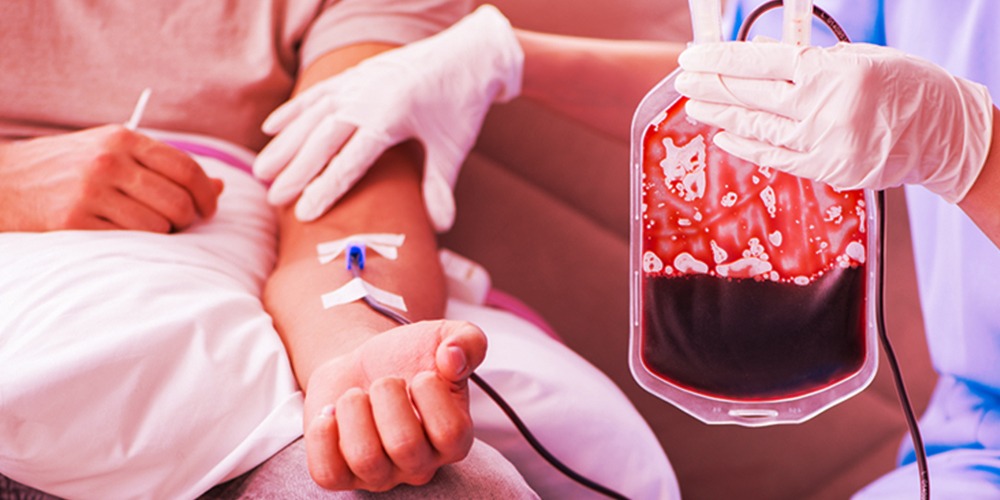
Best Anaemia Treatment In Delhi
Out of all the blood-related disorders, anaemia is the most common and prevalent one, affecting more than half of the world population. As per a Global Nutrition report, India was placed at the bottom of the list with the maximum number of anaemic women in the world. More than about 51% of women in India belonging to the reproductive age are suffering from anaemia. So, the big question is what anaemia really is and how it affects people's health. Anaemia refers to a condition where a person lacks enough red blood cells in his blood to carry adequate oxygen to various body tissues. When a person suffers from anaemia it can make him or she feel tired to perform even his everyday activities. Let us have a look at what causes anaemia and the Best Anaemia Treatment in Delhi.
Symptoms of Anaemia
The most common symptom one may initially notice with anaemia is fatigue, however, some other symptoms associated with Anaemia are
- Weakness
- Pale or yellowish tint of the skin
- Lightheadedness/ Dizziness
- Chest pain
- Frequent headaches
- Cold and numb hands and feet
Causes of Anaemia
The condition of anaemia arises when there aren't enough red blood cells in your blood, containing haemoglobin, an iron-rich protein known for carrying oxygen from the blood to the tissues of all body parts. This can occur in the following cases if
- Your body fails to produce enough red blood cells
- Your body itself destructs the red blood cells produced
- Bleeding leads to the loss of red blood cells at a more quicker rate then they are produced
Types of Anaemia
There are various types of anaemia depending upon their causes, some of which are
Iron-deficiency anaemiaThis is amongst the most common type of anaemia worldwide. This type of anaemia occurs due to the deficiency of Iron in your body. Iron is an essential component required for the formation of haemoglobin in your body that ultimately forms red blood cells. This type of anaemia is quite common in pregnant women, women having heavy menstruation and people suffering from certain kinds of ulcers and require the Best Anaemia Treatment in Delhi.
Vitamin deficiency anaemiaApart from Iron, your body needs vitamin B12 and folate in order to produce healthy red blood cells. Lack of nutrition and a diet lacking these vitamins can lead to vitamin deficiency anaemia. In some people, even after consuming adequate vitamin B12, their bodies are unable to utilise it, a condition that is commonly called pernicious anaemia.
Aplastic anaemiaIt is a rare kind of anaemia where your body fails to produce enough red blood cells, which can be a life-threatening situation. The causes of this anaemia are autoimmune disorders, other infections and exposure to toxic chemicals.
Anaemia linked to bone marrow diseaseCertain blood disorders such as leukaemia can lead to anaemia by hindering the production of red blood cells in your bone marrow. The effects of this condition can vary from mild to even life-threatening that needs the Best Anaemia Treatment in Delhi.
Anaemia of chronic conditionCertain chronic conditions such as cancer, AIDS/HIV, kidney conditions, rheumatoid arthritis, and other chronic inflammatory diseases can hinder the production of red blood cells.
Sickle cell anaemiaIt is an inherited anaemia where the shape of red blood cells is defective, i.e they are sickle-shaped, which makes them die prematurely. This leads to a serious condition where there is a chronic shortage of these cells in the body.
Hemolytic anaemiaThis type of anaemia occurs when the rate at which red blood cells are destroyed is not met by the rate at which they are produced. Various blood diseases can aggravate the destruction of RBC's and result in haemolytic anaemia.
Risk Factors
Following risk factors contribute to the occurrence of anaemia
Poor dietA diet consistently low in Iron and Vitamin B12 leads to iron deficiency anaemia.
Pregnancy/MenstruationA woman who is of menstrual age suffers recurrent blood loss every month which puts her at high risk of developing anaemia. similarly during pregnancy, if a woman fails to takes Iron supplements and Vitamin B12 then she is at a higher risk of developing anaemia.
Chronic disordersChronic conditions such as cancer, AIDS, ulcer, and kidney failure puts you at a high chance of developing anaemia.
Family historyIf you have a family history of sickle cell anaemia then you are likely to develop anaemia sooner or later in your life requiring the Best Anaemia Treatment in Delhi.
Other factorsOther factors such as alcoholism, exposure to toxic chemicals, autoimmune disorders and blood disorders can result in anaemia.
Diagnosis and Treatment
Diagnosis of anaemia can be carried out by doing a complete blood count and determining the shape of the red blood cells. As far as treatment is concerned, it depends upon the type of anaemia you have. For vitamin deficiency or Iron deficiency anaemia, Iron and vitamin B12 are given to replenish the deficiency. For other serious types of anaemias, bone marrow transplant or blood transfusion may be required depending upon their condition. In certain cases, removal of spleen or plasmapheresis may be the treatment of choice that requires treatment from the Leading Haematologist in Delhi.
Make Appoinment